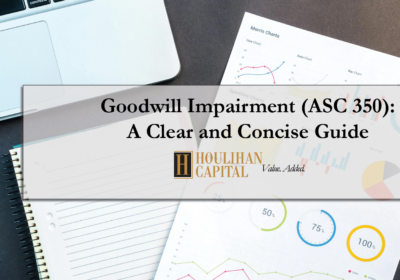In 2017, the Trump Administration and 115th Congress passed The Tax Cuts and Jobs Act of 2017 (“the TCJA” or “the Act”)(1) into law. Motivated by multiple key objectives including providing tax relief to middle-income families, simplifying the personal income tax code, repatriation of overseas earnings for U.S. corporations, and general economic growth, the TCJA represented one of the most significant overhauls of the U.S. tax code in recent decades. Among its myriad provisions, the Act’s changes to the federal gift and estate exemption levels were particularly noteworthy for business owners, their advisors, and high-net-worth individuals planning their estates. Understanding the implications and acting swiftly is paramount as changes are slated to sunset in 2026.
The Gift and Estate Exemption
The TCJA significantly altered the federal gift and estate tax exemption (“the exemption”). The exemption is a provision of U.S. Tax Code, which permits individuals and spouses to transfer a certain amount of assets to others without paying federal gift or estate taxes on those transfers. This allows for a tax-efficient way to transfer wealth to heirs and others.
The amount of the exemption is set by law and is adjusted over time for inflation. Below is a chart that describes the change over time:
| Year | Group | Exemption ($ Millions) |
|---|---|---|
| Pre-TCJA | Single | $5.49 M |
| Pre-TCJA | Married | $10.98 M |
| TCJA Effective Dec. 22, 2017 | Single | $11.8 M |
| TCJA Effective Dec. 22, 2017 | Married | $22.36 M |
| As of January 1, 2024 | Single | $13.61 M |
| As of January 1, 2024 | Married | $27.22 M |
The Sunset
The TCJA’s increased exemption is scheduled to automatically sunset on December 31, 2025. Thus, the exemption will revert to the pre-TCJA level, adjusted for inflation, which will be around $7 million for individuals and $14 million for married couples. At current federal gift tax rates, those lower exemptions imply potential incremental tax liabilities of approximately $2.5 million and $5 million, respectively. Accordingly, estates that do not act now could suffer disastrous consequences.
Example:
A married couple has an estate worth $30 million and has taken the appropriate steps to gift $27.22 million out of their estate prior to December 31, 2025. Under the TCJA, the estate will only be subject to federal estate taxes on $2.78 million. With the current federal estate tax rate at 40%, the estate would pay $1.112 million in taxes.
However, if the couple fails to make the gift prior to the December 31, 2025 deadline, the estate would be subject to federal taxes on $16 million rather than $2.78 million, resulting in a $6.4 million tax bill instead of the $1.112 million they could have paid.
Time is of the Essence
It is imperative that affected individuals and married couples (i.e., those with estates valued above $7 Million and $14 Million, respectively) act now due to the complexity of the gifting process. Estates must seek guidance from trusted advisors such as accountants, financial advisors, attorneys and valuation experts, to devise the most tax efficient strategy possible. Legal entities such as Dynasty Trusts, Spousal Lifetime Access Trusts (SLATs), Grantor Retained Annuity Trusts (GRATs), Irrevocable Life Insurance Trusts (ILITs), Charitable Lead Annuity Trusts (CLATs), etc. must be formed, trustees must be named, bank accounts for such trusts must be established, and a valuation of the assets being transferred must be performed.
Moreover, the timing is right. Several market forces have driven valuations of private companies down providing an opportunity to gift an even greater percentage of one’s assets tax free than when valuations return to normal levels and the TCJA sunsets.
How Houlihan Capital Can Help
The IRS requires that gift and estates tax valuations be completed by a qualified appraiser and is in compliance with IRC 59-60. Houlihan Capital can help with valuations related to the Act’s changes to the federal gift and estate exemption levels for business owners, their advisors, and high-net-worth individuals that are planning their estates.
For valuation assistance to maximize your or your clients’ estate planning benefits before the TCJA sunset, please contact:
Casey Conrad-Davis
Senior Vice President
cconrad-davis@houlihancapital.com
_______________________
(1) https://www.congress.gov/115/bills/hr1/BILLS-115hr1enr.pdf



